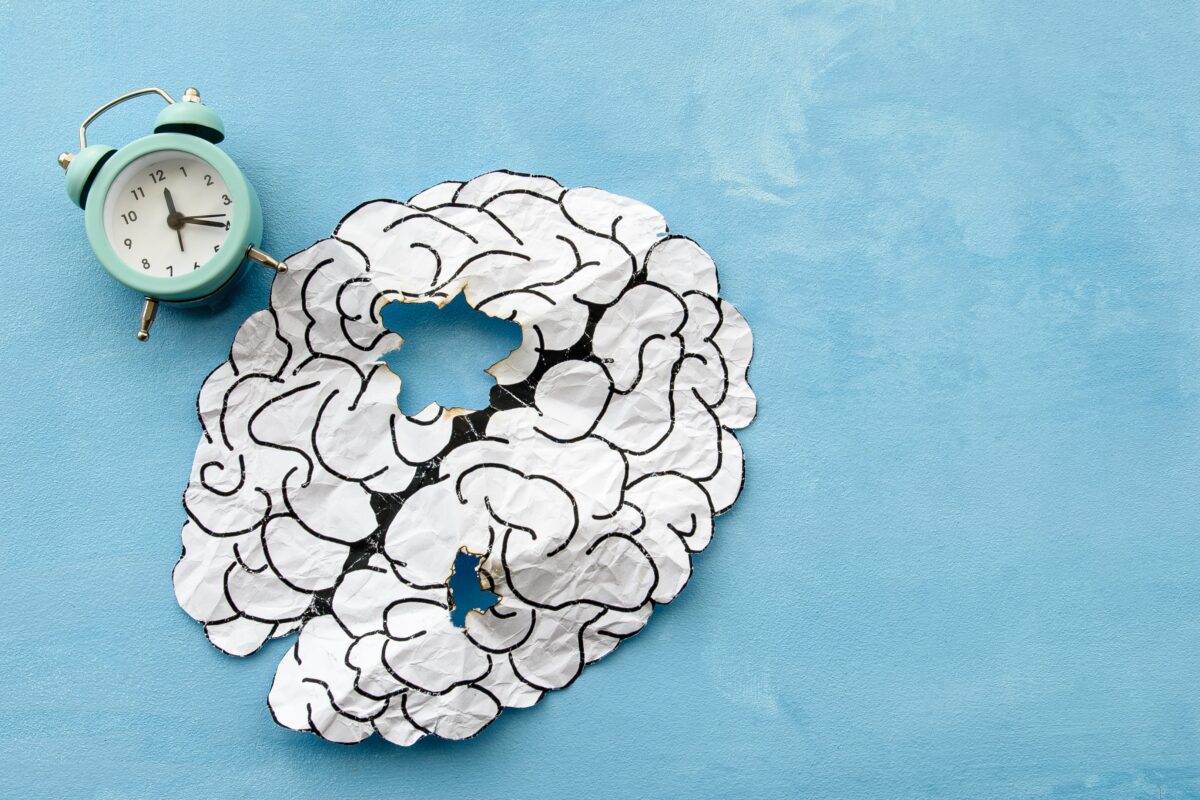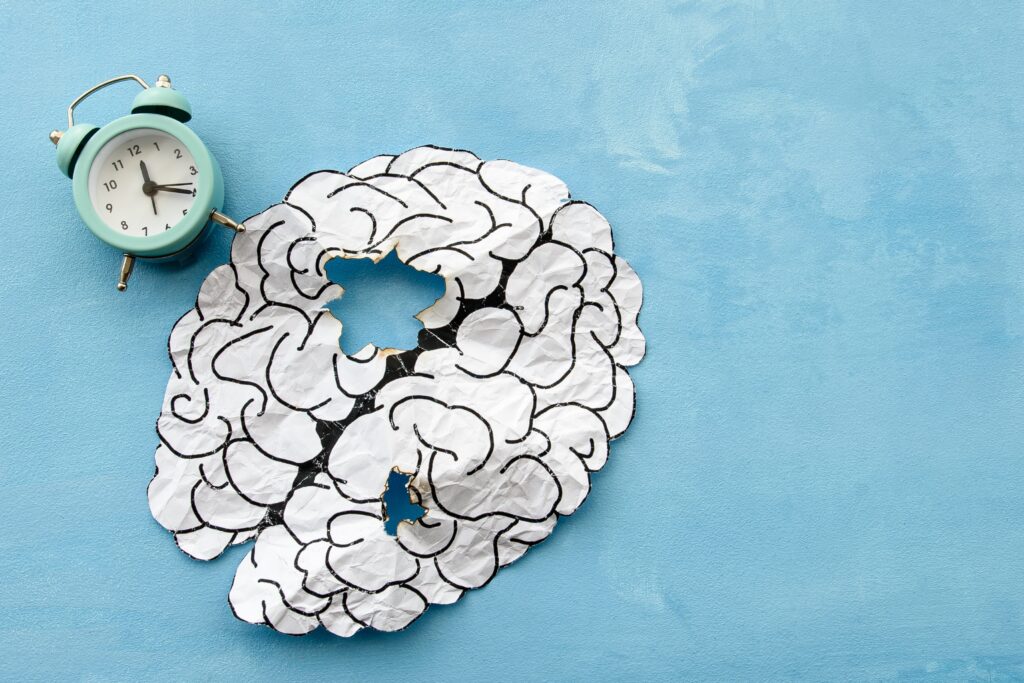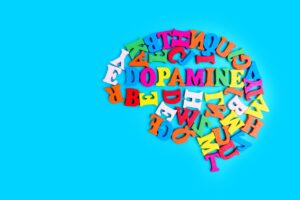
Short Sleep and High Blood Pressure Linked to Accelerated Brain Aging and Cognitive Decline
A groundbreaking study from Monash University (Australia) has revealed a concerning link between high blood pressure, insufficient sleep, and their combined impact on brain health. Researchers found that individuals with hypertension who sleep less than six hours per night are at a significantly higher risk of brain injury, accelerated brain aging, and impaired cognitive functions compared to those with normal blood pressure or adequate sleep.
These findings underscore the importance of addressing both sleep problems and high blood pressure to protect brain health, delay cognitive decline, and improve overall quality of life.

Study Details: Methodology and Background
Research Team and Publication
This study was conducted by Associate Professor Matthew Pase and Dr. Stephanie Yiallourou from the Monash University School of Psychological Sciences and Turner Institute for Brain and Mental Health. It was published in the prestigious Journal of the American Heart Association and utilized data from the Framingham Heart Study, a renowned longitudinal study that has significantly contributed to our understanding of cardiovascular health and its broader implications.
Participants and Procedures
As reported by Neuroscience News, the research involved 682 dementia-free participants, who underwent a series of assessments to explore the interaction between sleep duration, hypertension, and brain health. These assessments included:
- Sleep Analysis: Participants completed overnight sleep recordings and self-reported their typical sleep duration.
- Blood Pressure Monitoring: Blood pressure measurements identified hypertensive and normotensive individuals.
- Cognitive Testing: Participants’ executive functioning and cognitive performance were evaluated using standardized tests.
- Brain Imaging: MRI scans were performed on 637 participants to identify markers of brain injury and aging.
Historical Context
Previous research has established that insufficient sleep (defined as less than seven hours per night) is associated with hypertension and cognitive decline. However, this study is the first to investigate how the combination of short sleep and high blood pressure affects brain health and cognitive skills.
Innovation of the Study: Breaking New Ground
This research is innovative in its focus on the synergistic impact of two modifiable risk factors—short sleep and hypertension—on brain health. Unlike prior studies that examined these factors in isolation, this study uncovers their combined effect, offering a deeper understanding of how lifestyle factors interact to accelerate brain aging and cognitive decline.
Additionally, the study is unique in its use of comprehensive data, including cognitive testing and advanced MRI imaging, to draw robust conclusions. This approach highlights the structural and functional consequences of the “double hit” posed by hypertension and insufficient sleep.
Key Findings: Risks and Opportunities
- Increased Risk of Cognitive Decline:
- Participants with high blood pressure who slept less than six hours per night exhibited significantly poorer executive functioning compared to those with normal sleep or blood pressure.
- Accelerated Brain Aging:
- Brain MRIs revealed markers of brain injury and aging in hypertensive participants who reported short sleep durations.
- No Risks Observed in Normotensive Participants:
- These adverse effects were not seen in individuals with normal blood pressure, even if they had short sleep durations.
- Consistent Across Variables:
- The findings remained consistent after accounting for genetic, clinical, and demographic factors, emphasizing the robustness of the results.
- Widespread Sleep Problems:
- Over one-third of Australians experience sleep problems, making these findings relevant to a significant portion of the population.
Impact on Cognitive Abilities
The study provides critical insights into how the combination of insufficient sleep and hypertension impairs cognitive abilities, particularly executive functioning. Executive functions include higher-order cognitive skills such as planning, decision-making, impulse control, and the ability to adapt to changing situations. These skills are vital for productivity, problem-solving, and social interactions.
Participants with high blood pressure and less than six hours of sleep per night demonstrated significantly poorer performance in cognitive tests. They struggled with focus, time management, and information processing compared to individuals with normal blood pressure or sufficient sleep. MRI scans revealed brain injuries and markers of accelerated aging that likely contribute to these cognitive deficits.
This cognitive decline can have far-reaching consequences, including reduced job performance, difficulties in managing personal responsibilities, and heightened stress levels. Over time, such impairments may lead to greater dependency, strained relationships, and a diminished quality of life.
What sets this study apart is its identification of the amplified impact of hypertension and short sleep on cognition. Previous research focused on each factor independently, but this study shows that their combination poses a unique and severe risk to brain health. Addressing these dual risks through better sleep hygiene and blood pressure management could help prevent executive dysfunction and reduce the risk of dementia.
Significance for Science, Medicine, and Society
Scientific Advancements
This study enriches the understanding of how lifestyle factors like sleep and blood pressure interact to affect brain health. It lays the groundwork for future research into the long-term implications of these interactions, including their role in dementia risk.
Medical Relevance
Healthcare providers can use these findings to identify at-risk individuals — specifically those with hypertension and poor sleep habits. Screening for and treating these conditions could help delay cognitive decline and reduce the burden of brain-related aging.
Societal Impact
Sleep disorders affect millions of people worldwide, and high blood pressure is a leading cause of morbidity. This research highlights the importance of raising public awareness about the role of sleep in maintaining brain health and encourages to promote interventions that address these modifiable risk factors.
Conclusions
This study underscores the significant impact of insufficient sleep and high blood pressure on brain health. The findings reveal that the combination of these factors accelerates brain aging, impairs cognitive functions, and increases the risk of cognitive decline.
The message is clear: tackling both sleep problems and hypertension through early intervention and lifestyle changes can open new avenues for protecting brain health. Promoting better sleep hygiene, managing blood pressure, and raising awareness of their combined risks should become priorities for healthcare professionals and public health initiatives.
Additionally, incorporating cognitive training programs could play a complementary role in mitigating the effects of these risk factors. Exercises designed to enhance memory, problem-solving, and executive functioning may help individuals build cognitive resilience, especially those with high blood pressure or poor sleep patterns. Combined with lifestyle interventions, cognitive training offers a holistic approach to maintaining brain health and reducing the risk of long-term cognitive decline.
Future research will study whether the “double hit” of poor sleep and hypertension increases the risk of dementia in the long term. In the meantime, according to study author Associate Professor Pase, addressing sleep problems and hypertension offers new opportunities for promoting brain health and slowing cognitive decline.













